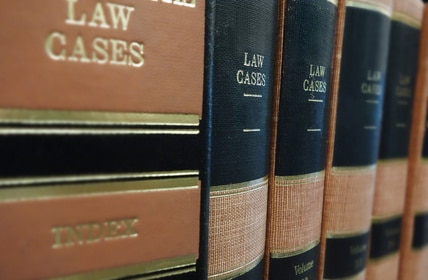Recognizing Habeas Corpus: An Attorney's Guide to Legal Civil Liberty
Recognizing Habeas Corpus: An Attorney's Guide to Legal Civil Liberty
Blog Article
Understanding the Role of a Post-Conviction Attorney in Seeking Justice After a Criminal Conviction
In the complex landscape of post-conviction lawful process, the role of a post-conviction attorney is pivotal in browsing the path to justice after a criminal sentence. Past the confines of a trial, these attorneys take part in a diverse approach intended at revealing brand-new evidence, tough lawful errors, and supporting for their customers' rights. The details of post-conviction work call for a mix of legal acumen, investigatory skills, and strategic assuming to decipher the intricacies of an instance and pursue opportunities that may have been ignored or underexplored. As the quest of justice extends past the confines of first procedures, the role of a post-conviction legal representative becomes a sign of expect those seeking to fix oppressions and redeem their civil liberties within the legal system.
Post-Conviction Lawyer's Investigative Job
Post-conviction lawyers engage in thorough investigatory work to reveal brand-new evidence, step-by-step mistakes, or misconduct that can potentially lead to reversing a conviction. This investigatory stage is essential in the post-conviction process as it aims to identify any ignored details or legal mistakes that may have influenced the end result of the preliminary test. Post-conviction attorneys dive into case files, witness testaments, and lawful documentation with a fine-tooth comb, looking for any kind of disparities or irregularities that could be grounds for charm.
Through detailed examination, post-conviction legal representatives intend to lose light on potential oppressions that may have occurred throughout the initial trial. By scrutinizing every facet of the legal process, post-conviction attorneys function tirelessly to reveal any elements that may have affected the judgment.
Crafting Appeals and Petitions
In the quest of justice after a sentence, competent lawyers carefully craft charms and applications to existing engaging arguments for the reconsideration of legal decisions. Crafting allures and requests calls for a deep understanding of the lawful system, focus to detail, and critical reasoning. Post-conviction legal representatives analyze trial records, identify possible mistakes or offenses of civil liberties, and develop legal arguments to challenge the sentence or sentence.
When crafting an appeal, attorneys concentrate on highlighting lawful mistakes that might have impacted the end result of the case. They investigate instance regulation, statutes, and legal criteria to support their arguments. Applications, on the various other hand, may involve presenting new proof that was not offered during the trial or demonstrating changes in the regulation that require an evaluation of the conviction.
Moreover, post-conviction lawyers must adhere to stringent step-by-step regulations and due dates when submitting appeals and requests. They should offer their debates clearly and persuasively to persuade the court to grant relief to their clients. Via thorough crafting of charms and petitions, post-conviction lawyers make every effort to protect justice for people who have been wrongfully convicted or unjustly sentenced.

Going After Post-Conviction Relief
Post-conviction alleviation encompasses a range of lawful systems created to challenge the legitimacy of a conviction or sentence. Post-conviction lawyers play an important role in navigating these complicated treatments, ensuring that all lawful options are discovered to correct injustices that might have taken place during the trial or sentencing phase.
One usual form of post-conviction alleviation is submitting a request for post-conviction alleviation, normally based on cases of inefficient support of guidance, prosecutorial misbehavior, recently discovered evidence, or constitutional violations. Experienced post-conviction legal representatives have the abilities and knowledge needed to recognize viable legal insurance claims, carry out investigations, and present compelling arguments to safeguard alleviation for their clients.
Making Use Of Forensic Evidence
When challenging a sentence or sentence, the calculated usage of forensic evidence can be a powerful device in post-conviction legal procedures. Forensic proof incorporates a vast array of clinical strategies made use of to investigate criminal activities and establish realities in court. Post-conviction attorneys can utilize forensic proof to test the validity of sentences by presenting brand-new clinical searchings for that were not available during the original trial.

Taking Part In Sentence Alterations
Post-conviction lawyers might explore the opportunity of sentence adjustments as a lawful avenue to attend to out of proportion or unfair sentences passed on in criminal instances. Sentence alterations include seeking modifications to the terms of a defendant's sentence after a sentence has happened. These adjustments can include lowering the length of a sentence, modifying the sort of penalty enforced, or checking out alternative sentencing choices.
Post-conviction attorneys can pursue sentence alterations through different lawful systems, such as submitting movements for sentence reduction, appealing for caring launch, or negotiating appeal offers for lowered sentences. They must meticulously examine the conditions of the situation, evaluate the legal grounds for seeking an adjustment, and existing engaging disagreements to the court sustaining the demand for a modified sentence.
Participating in sentence alterations calls for a complete understanding of criminal regulation, punishing guidelines, and the certain procedures associated with seeking post-conviction alleviation. Post-conviction lawyers play an important function in promoting for fair and just end results by challenging sentences that are unduly extreme or do not line up with the principles of justice.
Conclusion
Finally, the function of a post-conviction lawyer is vital in looking internet for justice after a criminal conviction. Through investigative work, crafting charms and applications, going after post-conviction relief, utilizing forensic evidence, and participating in sentence adjustments, these attorneys play a vital role in advocating for their customers and making certain that their rights are promoted within the criminal justice system. Their commitment and experience are crucial in browsing the intricacies of post-conviction procedures and attaining a fair end result for individuals encountering criminal sentences.
Report this page